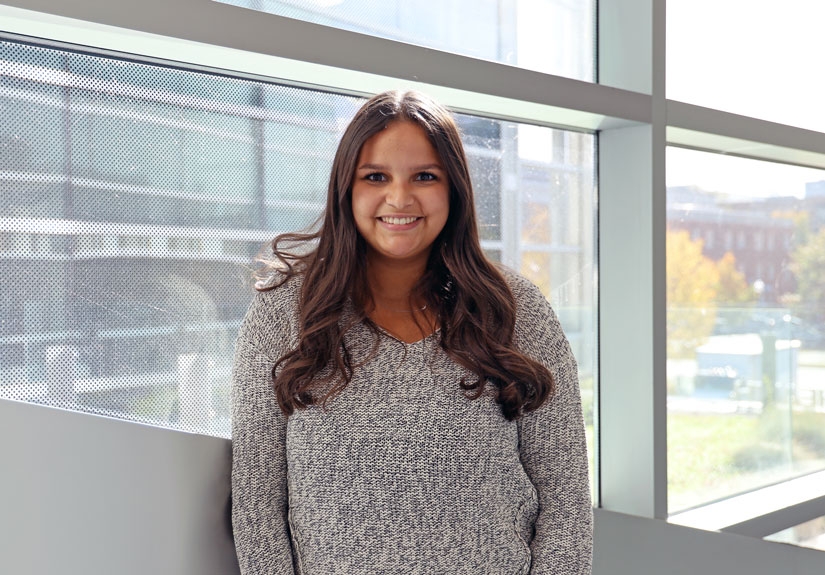Public Health Buckeyes: Rosa Negash
Master’s student explores connections between data, policymaking

Meet Rosa Negash, a second-year MPH student in epidemiology, who explores some of the most important topics in public health today using her data management and analysis skills.
Question and Answer
Why did you decide to pursue public health at Ohio State?
I was attracted to the master’s in public health program at Ohio State because of the research initiatives and potential for experiential learning as a student. I graduated in 2020 from Ohio University and spent a year working at my local health department in southeast Ohio on COVID-19 response efforts through contact tracing and supporting vaccination clinics. I knew I wanted to continue gaining real-world public health experiences while also advancing my academic knowledge.
Specializing in epidemiology has allowed me to combine my interests in community engagement, analytical research and disease prevention. I am excited to have joined the field of public health at a time of great change, to better meet the demands of the public challenges we face today.
You recently celebrated becoming a naturalized citizen. How do you think your experiences as an immigrant shape your perspective on public health?
My experiences as an immigrant have always shaped my world view and are a large part of my identity as a person and student. I can consider public health questions in both local and global contexts, which is increasingly relevant as we live in a society where public health transcends borders and nationalities. I feel incredibly privileged to continue working as a public health practitioner as a naturalized citizen and will continue to center the experiences of immigrants and other marginalized groups in my work.
You’re a graduate research associate for the Ohio Policy Evaluation Network (OPEN). What is your favorite part of that work?
My favorite part of working with OPEN so far has been the ability to learn from so many incredible public health scientists. Everyone I work with is so driven and dedicated to understanding the reproductive health landscape of Ohio, and how public policy intersects with changes in reproductive care access. I have really enjoyed being able to connect how data informs policy decisionmaking and how policy contextualizes trends. I am also gaining data management skills, experience with manuscript writing and learning new statistical software — all of which will better prepare me for my future work as a public health practitioner.
You’ve held additional research positions at the university focused on data analysis and biostatistics. What excites you most about doing research?
I think the stories we can share with data is what excites me most about epidemiological research. When thinking about a study question, you always need to relate it back to the study population. Each project I’ve worked on aims to describe modifiable risk factors that can lead to a tailored intervention. I also think it’s critical to identify where the gaps in research or clinical practice are that can be explored using public health methods.
What advice would you give to students considering a degree in public health?
I would encourage students to consider a degree in public health, even if they don’t have a narrowed topic or population they want to work with. So much of my experience at Ohio State has been focused on gaining skills and getting practice working on different data projects — this has helped me to solidify my research interests. Through my conversations with faculty and other students, I’ve also been exposed to so many areas of public health. My advice would be to figure out what your strengths are, whether it be community organizing, data analytics, or social justice advocacy, and apply them to public health. This will make your public health learning experience meaningful and personalized to you.
About The Ohio State University College of Public Health
The Ohio State University College of Public Health is a leader in educating students, creating new knowledge through research, and improving the livelihoods and well-being of people in Ohio and beyond. The College's divisions include biostatistics, environmental health sciences, epidemiology, health behavior and health promotion, and health services management and policy. It is ranked 22nd among all colleges and programs of public health in the nation, and first in Ohio, by U.S. News and World Report. Its specialty programs are also considered among the best in the country. The MHA program is ranked 5th and the health policy and management specialty is ranked 21st.